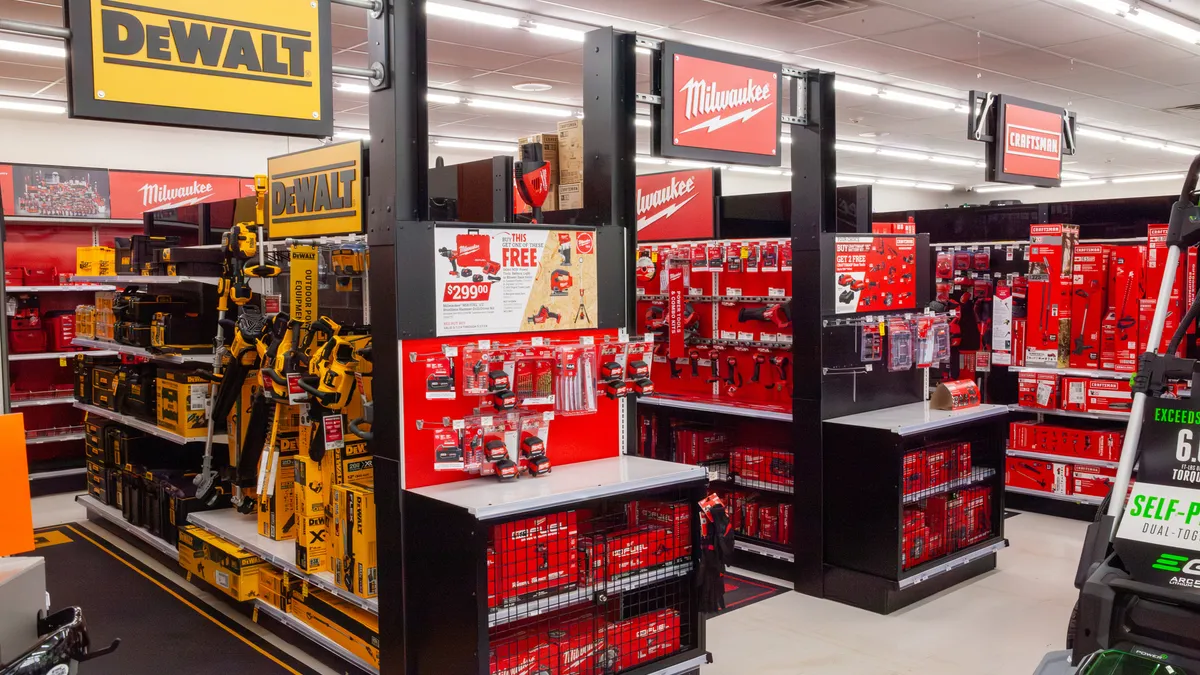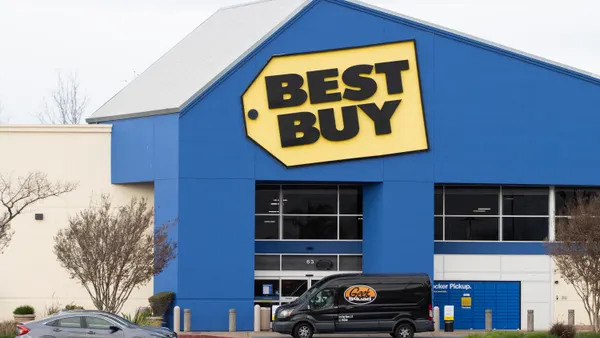Ace Hardware is preparing to launch a new experiential store model.
Dubbed Elevate Ace, CEO John Venhuizen on Thursday said the home improvement retailer plans to invest over $1 billion to add the concept to its new and existing stores over the next five years.
Key changes include adding store-in-store brand showrooms; new product assortments; a flagship store model featuring an outdoor space with a live goods display; and enhanced customer service.
“[We] wanted to create more than just a space where customers could come shop but a space in which they could connect,” Dale Fennel, the company’s vice president of merchandising, said in an interview with Retail Dive. “We think that Elevate Ace is a fundamental change in our store model.”
Ace Hardware introduced the Elevate Ace concept with a fully built out 13,000-square-foot model store inside the McCormick Place convention center during its recent convention in Chicago.
While a handful of stores will feature the new concept in Q4, Fennel said the full roll out will begin in January.
Experiential retail is “one of the absolute imperatives” for the company and for the overall future of retail, Fennel said. The revamp began two years ago with two goals in mind. The first was to build a store that highlights Ace Hardware’s core categories — paint, power tools, backyard grilling and home preservation. The second goal was about community.
A key element of the changes is to create an in-store shopping experience that can’t be matched online, Fennel said. A small number of brands and categories are fueling most of Ace Hardware’s current growth, “so we set out to really elevate those brands and create this immersive shopping experience that you can’t find anywhere else.”
The hardware retailer is debuting the experiential store model as it celebrates its 100th anniversary this year and the recent opening of its 5,000th location in the U.S. The company opened 111 new stores through June and plans to open 200 overall by the end of the year. Globally, Ace Hardware has over 5,800 locations in 60 countries.
The industry has changed since the company last updated its store design five years ago. To enhance the customer service experience, Fennel said they’ve trained frontline associates to serve as brand advocates who can help walk customers through a purchasing decision whether they want to shop by brand or by features.
Additionally, Fennel said they’ve optimized the assortment in the home preservation section and that the makeup of the product categories will shift. While the grilling category will occupy the same space on the sales floor, Fennel said the power department will grow significantly by about 60%.
“We really are focusing in on trying to understand what the customer wants, whether it be by brand or features and benefits, and serving up to them all the products that are available at Ace either in store or in the case of grilling, for assembly and delivery,” Fennel said.
As a cooperative, Ace Hardware has a different business model than big-box home improvement stores. And Fennel said the company operates in a slightly different retail segment than Lowe’s or The Home Depot. Most Ace Hardware stores, for example, don’t offer building materials or large appliances. That approach has insulated the company from some of the economically driven consumer reluctance or inability to spend on big discretionary purchases, like major home renovations.
Lowe's and Home Depot saw sales decline in their most recent quarters, down 4.4% and 2.3%, respectively. Ace on the other hand reported first-quarter revenues grew 2.5% year over year to $2.1 billion.
“We know there’s different purchase occasions, and customers are going to shop with different retailers but that separation of home preservation versus home renovation is a key differentiator between us and big boxes,” Fennel said.















